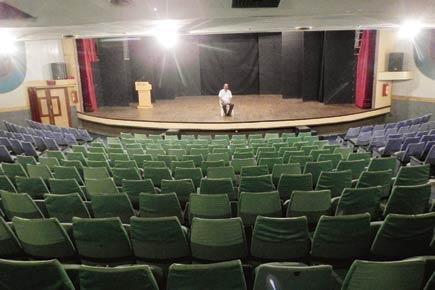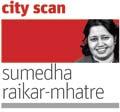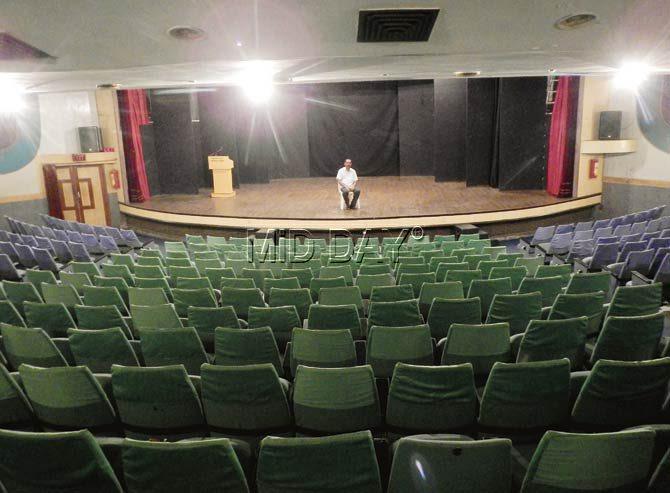As the Karnataka Sangh’s Kannada course marks 25 years, language learning becomes an unalloyed joy

 On the face of it, a language learning module implies time-bound grammar-focused lessons and writing exercises, the most tangible result of which comes in the form of key phrases imbibed by the student. The learning is measurable with the advent of online courses, apps and websites exclusively devoted to student assessment.
On the face of it, a language learning module implies time-bound grammar-focused lessons and writing exercises, the most tangible result of which comes in the form of key phrases imbibed by the student. The learning is measurable with the advent of online courses, apps and websites exclusively devoted to student assessment.
ADVERTISEMENT
While the attainment of fluency is surely an incentive, language learning can be a joy in itself, an end in itself. After being a part of the 25th anniversary event of the Kannada-Marathi certificate course (where I was invited as the culture columnist of mid-day) at Mumbai’s Karnataka Sangha, I am privy to the delight and bonding that a language learning class can create.

Karnataka Sangh auditorium where the culture of the southern state is showcased
In a city of distances, where people are besieged with multiple commitments, it was a pleasure to meet a roomful of language enthusiasts — young and old, men and women, fresh entrants and alumni — who shared their personal drives for signing up for a Kannada course. The positive energy exuded by the bunch of Kannada lovers elevated the formal anniversary event to an informal cultural carnival, where Mumbaikars of all hues celebrated their collective ability to find time and resources to nurture a passion.

Prakash G Burde, President of Karnataka Sangh in Matunga where the institute is located. Pics/Suresh KK
It is free
The Karnataka Sangha, a cultural organisation founded by Kannadigas of Mumbai in 1933, runs the three-year course free of cost since 1990. The curriculum has been acknowledged by the Kannada Department of the University of Mumbai. The students of this course get the final certificate from the university, whereas the Sangha gives its own special periodic certificates as part of the morale boosting.
The course runs in two evening classes over the weekend at a hall in the Sangha premises at Matunga. On an average, around 15 students make a class. However, the Sangha caters to extraordinarily smaller batches as well. Students are charged a nominal Rs 200 per year for books and allied resources. While most of the students are native Marathi speakers, there are some exceptions (North Indians) in the class.
In fact, the Sangha (often labelled parochial by nomenclature due to the Karnataka reference) makes a conscious effort to get a diverse student profile by advertising the three-year curriculum (both the Marathi and Kannada courses) in English, Hindi and Marathi newspapers. The Sangha’s Marathi language course has less number of takers, naturally because of the other avenues for Marathi conversation in the city.
A family
Interestingly, the avowed objective of the Sangha is to show how languages — Marathi and Kannada — become means to ‘ultimately achieve the goal of national integration and cultural harmony besides reaching new horizons of knowledge.’ As Sangha president P G Burde states, “We enjoy our public service role through this course. We take great pride in bringing Karnataka and Maharashtra closer by way of this language development module.” He feels that just as the Karnataka Sangha’s Kala Bharati musical Sunday mornings have built an audience for vocal and instrumental artistes; the Kannada-Marathi courses have helped in building a larger family of friends.
“Our students are Mumbaikars who care to learn a new language, without any political agenda or immediate gain. The course brings them together and binds them further as sensitive citizens who think beyond narrow divides.” Burde is happy about the fact that the course students are either uninterested or unaware and unmindful of the contemporary ongoing border or water disputes between Karnataka and Maharashtra.
Mumbai spirit
It is commendable that people have been negotiating vast distances from extended suburbs (as far as Badlapur and Virar and Panvel) to attend the late evening lectures at the Matunga premises. The course serves diverse purposes for different batches. The main chunk — people in their late forties and fifties — treat Kannada learning as one of their pastime activities. Most of them have ancestral roots in Karnataka or family connections that rest on linguistic exchanges.
As 51-year-old Kunda Angholkar informs, she took it up recently after her daughter passed the tenth standard exam, which was a good 20 years since the time when she first thought of enrolling when she had got married into a Kannadiga family. For 55-year-old Pramod Purohit, the course was a means to strengthen his ties with his ancestral Shurpali village in Karnataka. Since he was not conversant with the Kadamb script of the language, he wanted tutorials in appreciating Kannada literary works. Very soon, his 16-year-old daughter is also going to join him as a fellow-student.
Records galore
Wading through the Karnataka Sangha student records of 25 years, administrative in-charge Yashoda R Shetty shared many amazing student motivations that have endorsed the need for the Kannada course over the years. She recalls a wide array of alumni — a 12-year-old whose English-medium school did not give the scope for absorbing her mother tongue; an 82-year-old retired advocate who had taken it upon himself to learn all south-Indian languages; a homemaker who learnt Kannada to help understand her Manglorean daughter-in-law; a gentleman who wanted to read his property documents in Kannada; a corporate who was going to settle down in Bangalore for good; an engineering student focused on reading original works of S L Bhairappa and K Shivram Karanth; a few students who learnt Kannada to appreciate the promotion prospects in their jobs; a young boy who wanted to woo his girlfriend in Kannada; an upcoming theatre director who was Tulu (a dialect spoken in the southwest part of Karnataka) but needed to reach out to Kannada-speaking actors.
To end with the words of the Omdas Kannangar, the honorary secretary of the Sangha, “The Kannada course provides a platform for strong friendships and lifelong relations. It becomes the pivot for warm conversations over coffee and neer dosa...”
The course has been uninterrupted over the years, unaffected by suburban railway disruptions, torrential rains or other terrorist attacks, not to forget that the communal riots (1993) also did not interrupt the curriculum. After the recent death of a faculty member (Lakshmi Sudheendra), other members of the Sangha chipped in as teachers.
In present-day Maharashtra where language policies have generated fierce political debates (which have often taken uglier violent turns), it is undeniably heartening to see a language course create an environment of positive communication and happiness. Hege santosavannu!
The writer is a Mumbai-based culture chronicler.
 Subscribe today by clicking the link and stay updated with the latest news!" Click here!
Subscribe today by clicking the link and stay updated with the latest news!" Click here!






